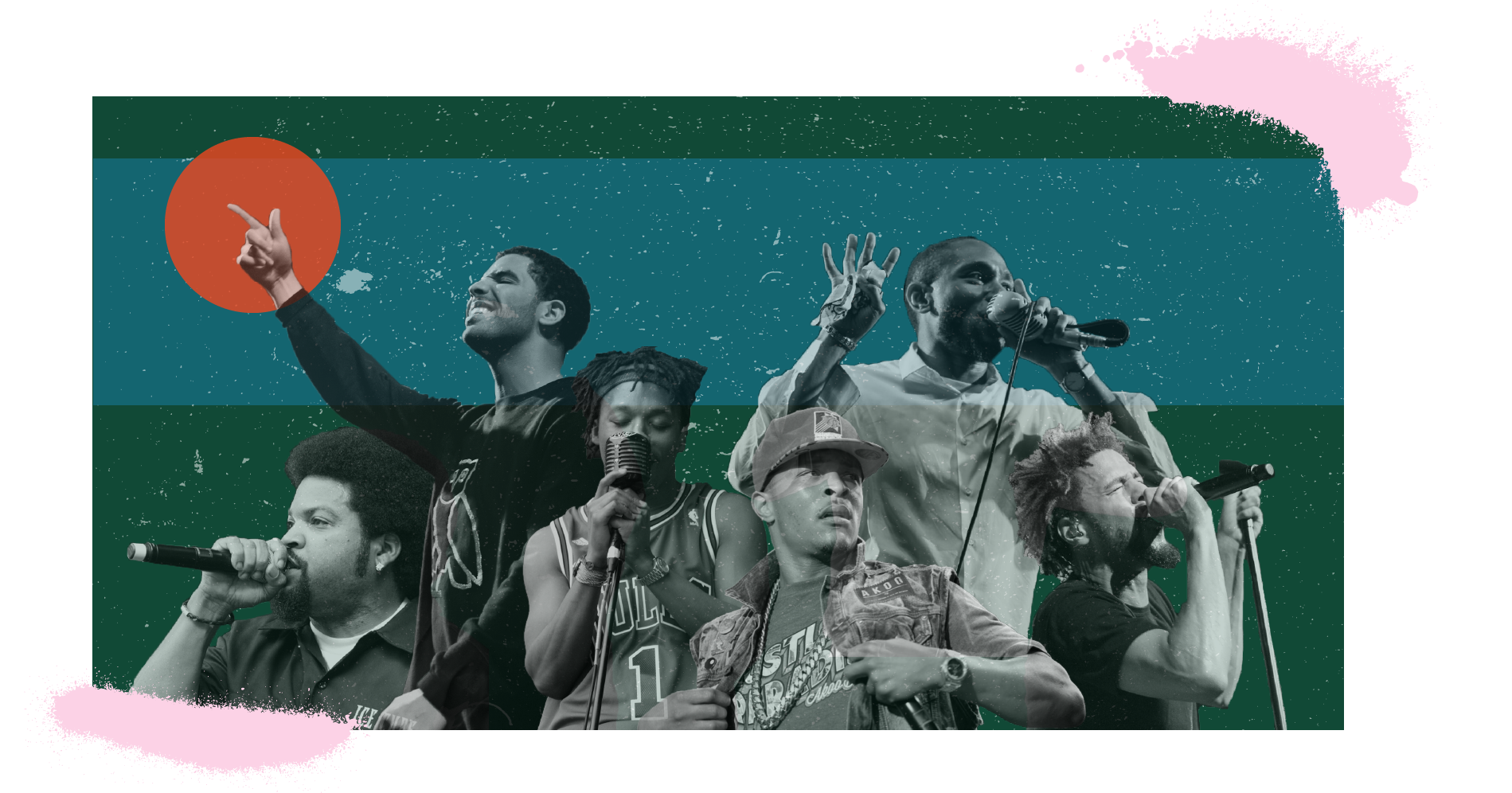
The Evolution of Conscious Hip-hop
By Ashley O'Connor
COLLEGE PARK, Maryland — In 1989, Public Enemy reached the very top of the Billboard “Hot Rap Songs” chart with “Fight the Power,” a revolutionary anthem that echoed a community cry against racism.
By 2003, music fans had pushed 50 Cent’s banger “In Da Club” — a self-congratulatory celebration of drinking, drugs and partying — to number one on the same chart, reflecting a larger shift in substance and style at the highest levels of hip-hop.
In the late 1980s and early 1990s, chart-topping rap songs were more likely to have political messages, a Capital News Service analysis of 30 years of Billboard chart data and lyrics found. By the early 2000s, themes of black power and police brutality had vanished in favor of apolitical references to partying, cars and girls, at least at the very top of the charts.
But, the analysis found, politically conscious rap is once again finding a place on the top of the charts, driven by the growth of the Black Lives Matter movement, the #metoo movement and opposition to Donald Trump.
Take one of 2018’s number one “Hot Rap Songs” track, “This is America,” a melodic wake-up call by Childish Gambino (a.k.a. Donald Glover) that juxtaposes the success of African-American entertainers with the suffering of poor African-American communities harmed by gun violence and police brutality.
“Look at how I'm livin' now, police be trippin' now, yeah this is America, guns in my area,” he raps.
Childish Gambino, like other artists, draws attention to beliefs that police departments are beset by systematic racism that were at play in the deaths of Michael Brown, Freddie Gray and other African-American men.
“Rap music is a reflection of what is going on in the minority community, so it’s one reason why you see these changes and these shifts, of course now we see a lot more political rap songs more akin to what you saw in the ’90s,” said Lakeyta M. Bonnette-Bailey, author of “Pulse of the People: Political Rap Music and Black Politics.”
For the analysis, CNS built a data set of every song that reached number one on the Billboard “Hot Rap Songs” chart from its birth in 1989 to today — about 350 songs in all. CNS then examined the lyrics for references to a variety of political themes — including police brutality, income inequality, poverty, discussion of elected leaders, gun violence, mass incarceration and more.
Over that 30-year period, CNS found that approximately 12 percent of number one songs had political references, but that there were wide variations in different eras. In the 1990s, approximately one-fifth of songs had political references, peaking at 33 percent of songs in 1991.
During the 2000s and 2010s, about one out of 10 songs had political content. But in some years — 1998, 1999, 2000, 2004, 2006, 2011 and 2010 — none of the top songs were political, CNS found. In recent years, political messages have started to creep back in. In 2017 and this year, 25 percent of top songs had political messages.
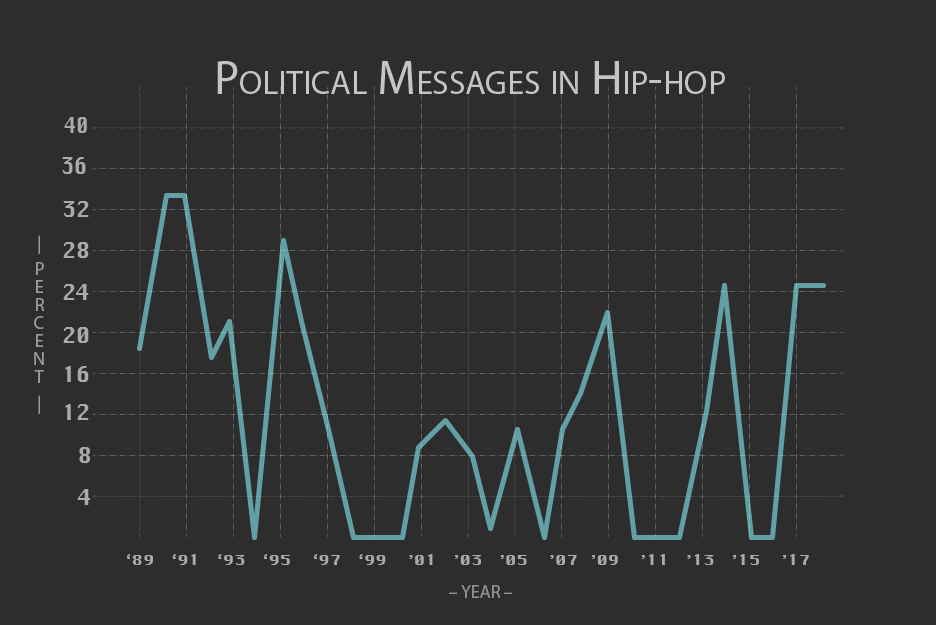
Different political topics dominated in different eras, CNS found.
Themes of police brutality were significantly higher in the late 1980s and early 1990s, driven by the popularity of songs like N.W.A.’s “F--- the Police”, released in 1988, and the 1991 Los Angeles riots that followed the brutal beating of Rodney King by three police officers.
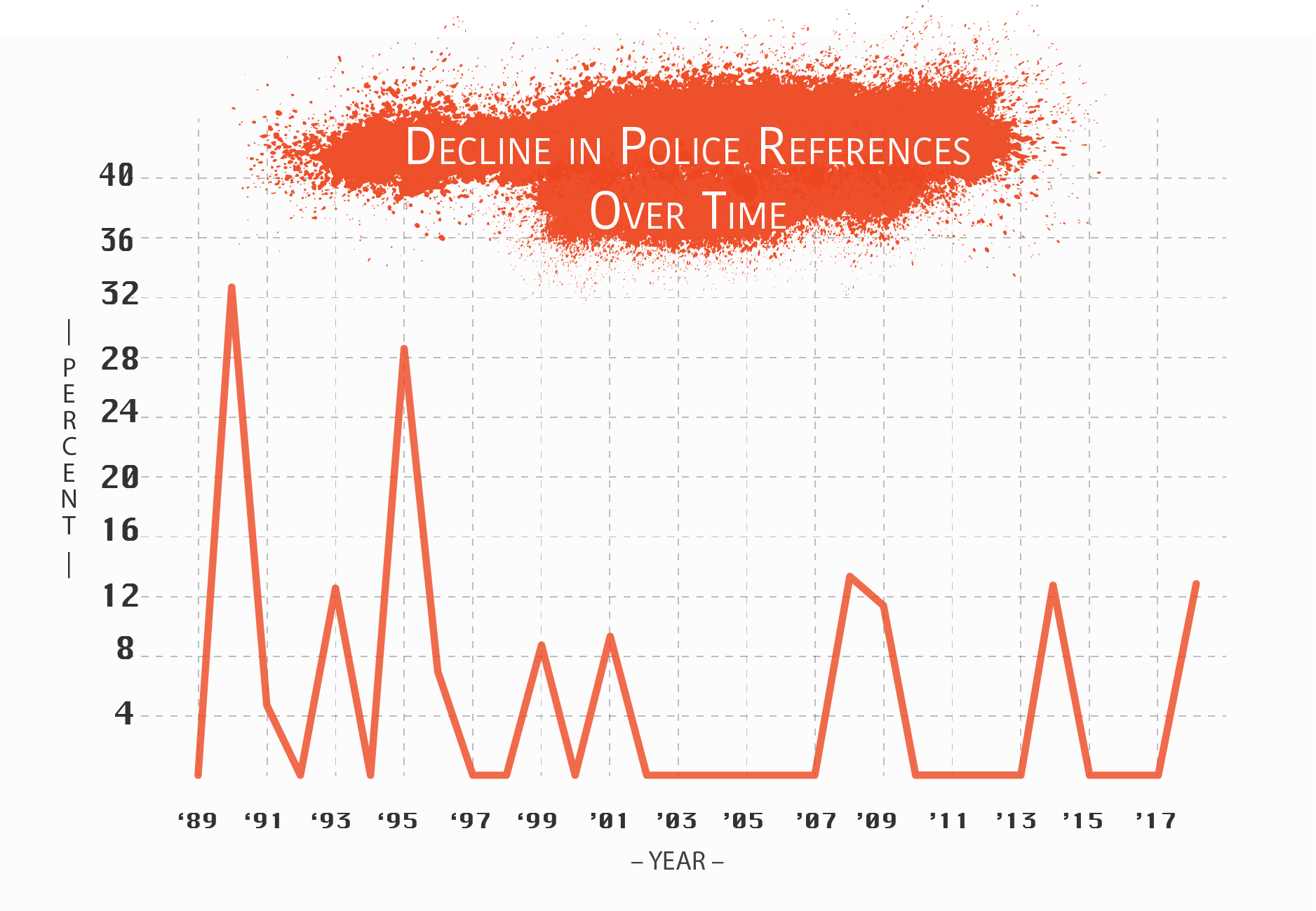
“That’s a hell of a statement [F--- the Police], because what you’re saying as a proletariat is government tyranny will not reign on me,” said Michael Render, better known as “Killer Mike” of the politically conscious hip-hop duo, Run the Jewels.
References to the war on drugs and its devastating impact on black communities also dominated in early 90s rap.
In the 1990 song “We’re All in the Same Gang,” The West Coast Rap All-Stars rapped: “Yeah a couple of spots will get popped and if the government wanted to freeze it it could all get stopped, but they want it like that because the system been set up to hold us back.”
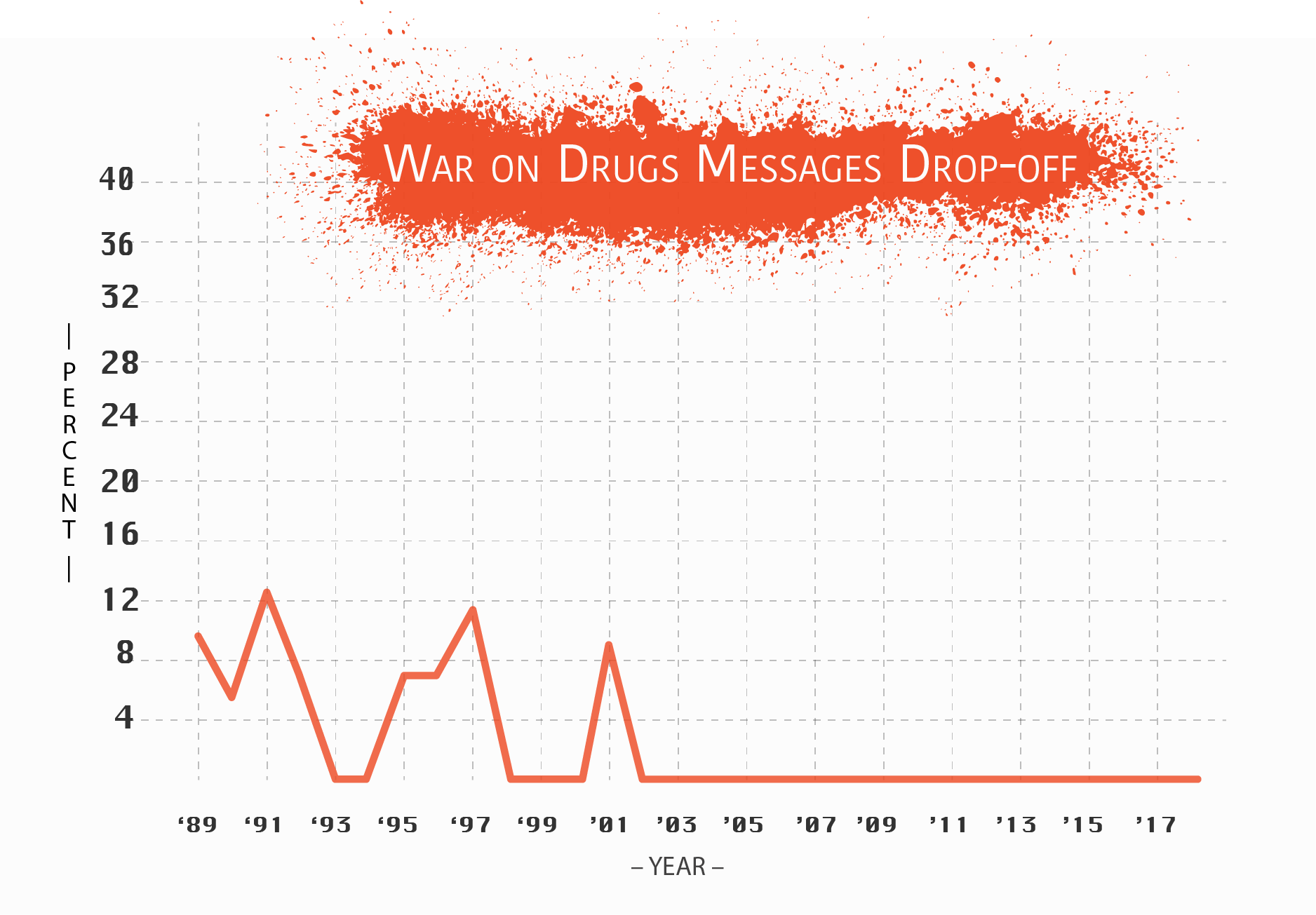
By the late 1990s and early 2000s, there was a notable drop off in political references at the top of the charts. One explanation: the surging popularity of rap music and the increasing focus by MTV and BET on the genre, according to music journalist Christina Lee.
Major labels signed more artists, but record companies didn’t think political songs would resonate with a large audience. So they pushed the feel-good, party songs that rose to the top of the “Hot Rap Songs” charts during that era.
The socio-economic climate may have also affected the amount of political consciousness in hip-hop.
During the long economic expansion of the mid-to-late 1990s and early 2000s, many Americans experienced a boost in financial prosperity. And that free-spending atmosphere was echoed in many popular rap songs of the era — even if the economic expansion left many behind.
“It was big party jams it was in the club, it was Ja Rule, it was a lot of money moving around and people having a lot of fun,” Render said.
That doesn’t mean there weren’t political rappers in the early 2000s. For example, Dead Prez released their debut studio album “Lets Get Free” in 2000, covering themes of black power, poverty and socialism. But they, and many others, never reached the top of the charts.
“I think like everything else it fluxes up and down, political messages have been a part of hip-hop since day one and I think they’ll be a part of hip-hop till the very end,” Render said.
But, Render said, party rap still serves a social purpose: “You gotta think about it, relaxing, laughing, enjoying yourself is a way to resist depression and oppression too...the records that are about shaking your a-- and forgetting all your problems are just as important as the ones that comment on what’s socially going on.”
And for Lee, artists who rap about their money are still making a political statement. “For most mainstream audiences they think of that as like ‘ah they’re flaunting cash and being really superficial’ but for certain communities where that wealth is inaccessible it’s like ‘ah man somebody made it out of here that means we could do it too,” Lee said.
As the 2000s continued into the 2010s, political content in the songs at the top of the charts started to creep back in.
In general, hip-hop is a movement driven by the concerns of poor and working-class people, Render said. And during times of economic insecurity, poverty concerns rise. In 2009, at the start of the financial crisis, references to poverty spiked. More than 22 percent of the hot songs in 2009 referenced poverty.
In Jay-Z’s ode to New York City, “Empire State of Mind,” he raps “eight million stories, out there in it naked, city is a pity, half of yall won’t make it.” The rap mogul recognizes many people live and die poor.
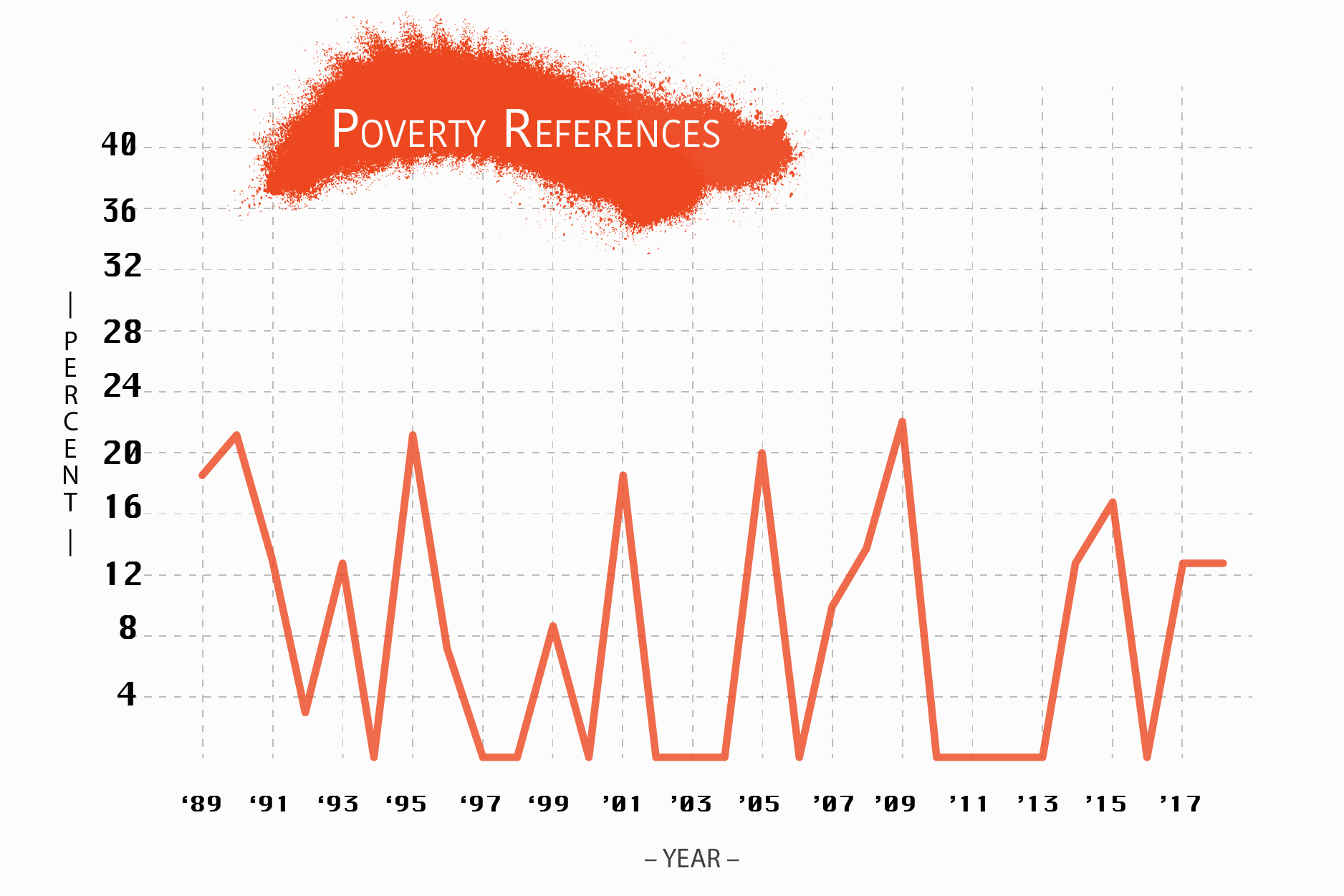
The amount of political content at the top of the charts in the last two years — 25 percent of songs in 2017 and 2018 — appears to be a direct response to the rise of social movements like Black Lives Matter and the political climate surrounding the Trump administration and policies frequently viewed as overtly racist by some artists.
Before Trump ran for office, he was a frequently referenced status symbol for many rappers. In 2011, Mac Miller’s song “Donald Trump” boasted, “takeover the world when I’m on my Donald Trump s**t, look at all this money.”
Miller’s thoughts on the billionaire significantly changed by 2016. On the Nightly Show with Larry Wilmore he said, “If we’re stupid enough to elect you...I’m staying right here. Imma be here every day telling the world how much of a clown you are and how we as a nation are better than you will ever be as a racist f---wad of human.”
The change is evident because hip-hop is “tuned in to how the political climate affects everyday people” more than most musical genres, Lee said, and politics are nearly impossible to ignore now. In recent years, there has been a marked uptick in references to police brutality, pro-feminist themes, slavery and problems with the justice system.
Police references in hip-hop are again rising, stemming from an ongoing national conversation about police brutality and discriminatory practices like ‘stop and frisk.’
In one of 2014’s hit songs “Hot N---a,” Bobby Shmurda raps “We gon pull up in that hooptie like we cops on ‘em,” a reference to the overrepresentation of African-Americans stopped by police.
With the rise of the #metoo movement, more pro-feminist references are creeping into the top songs, too. The idea that women can love and critique hip-hop helps produce more empowering songs, said Bonnette-Bailey.
The song that brags “these is bloody shoes,” referring to Christian Louboutin’s famed red-sole, actually amplifies “the American Dream,” according Bonnette-Bailey. Cardi B shamelessly raps about her rags to riches journey: being raised in the Bronx and working as a stripper, to making millions as a respected female MC. “Bodak Yellow” speaks to her triumph over circumstance and societal judgement, and encourages other underrepresented minorities to be proud of where they come from.
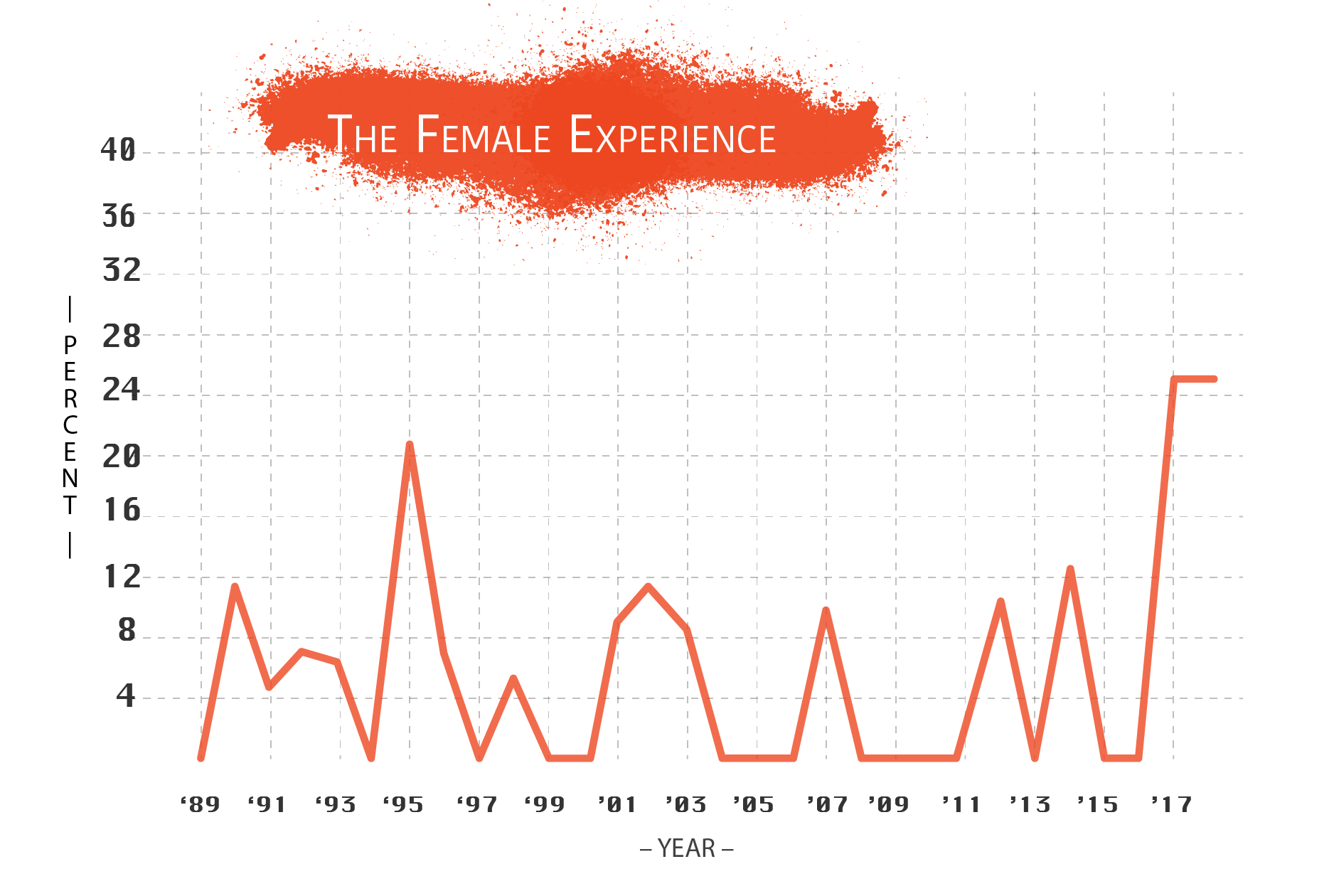
References to slavery vanished from the “Hot Rap Songs” charts after ’96 and reappeared this year.
“People are trying to say that we are in a post-racial society, that we elected a black president and it was highly suggested that we were now past our racial divisions, so we no longer had to look back to slavery,” Bonnette-Bailey said. But clearly that’s changed.
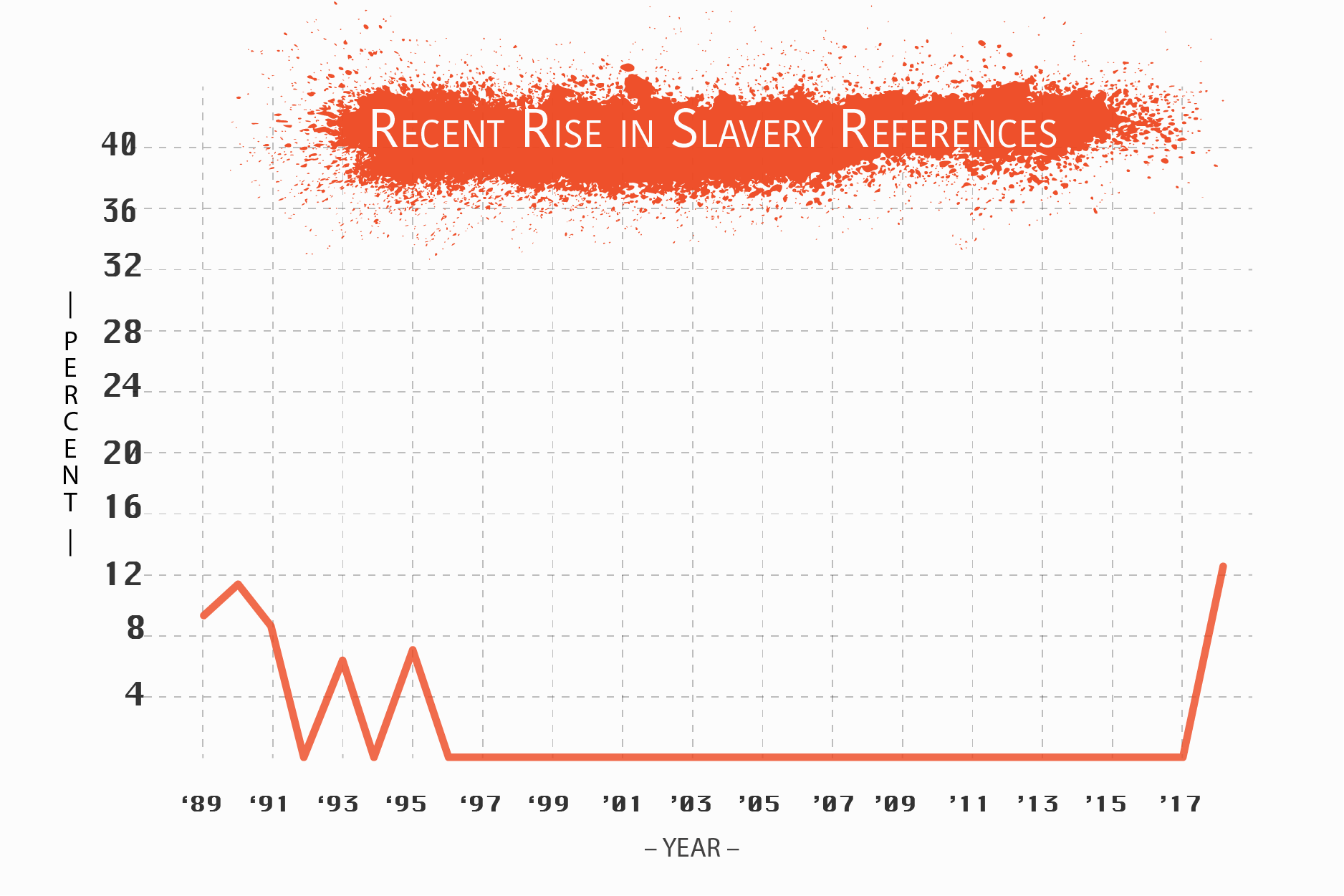
The recent uptick in slavery references could be connected to criticism of the criminal justice system, according to Bonnette-Bailey. The mass incarceration of African Americans was coined “The New Jim Crow” by best-selling author Michelle Alexander.
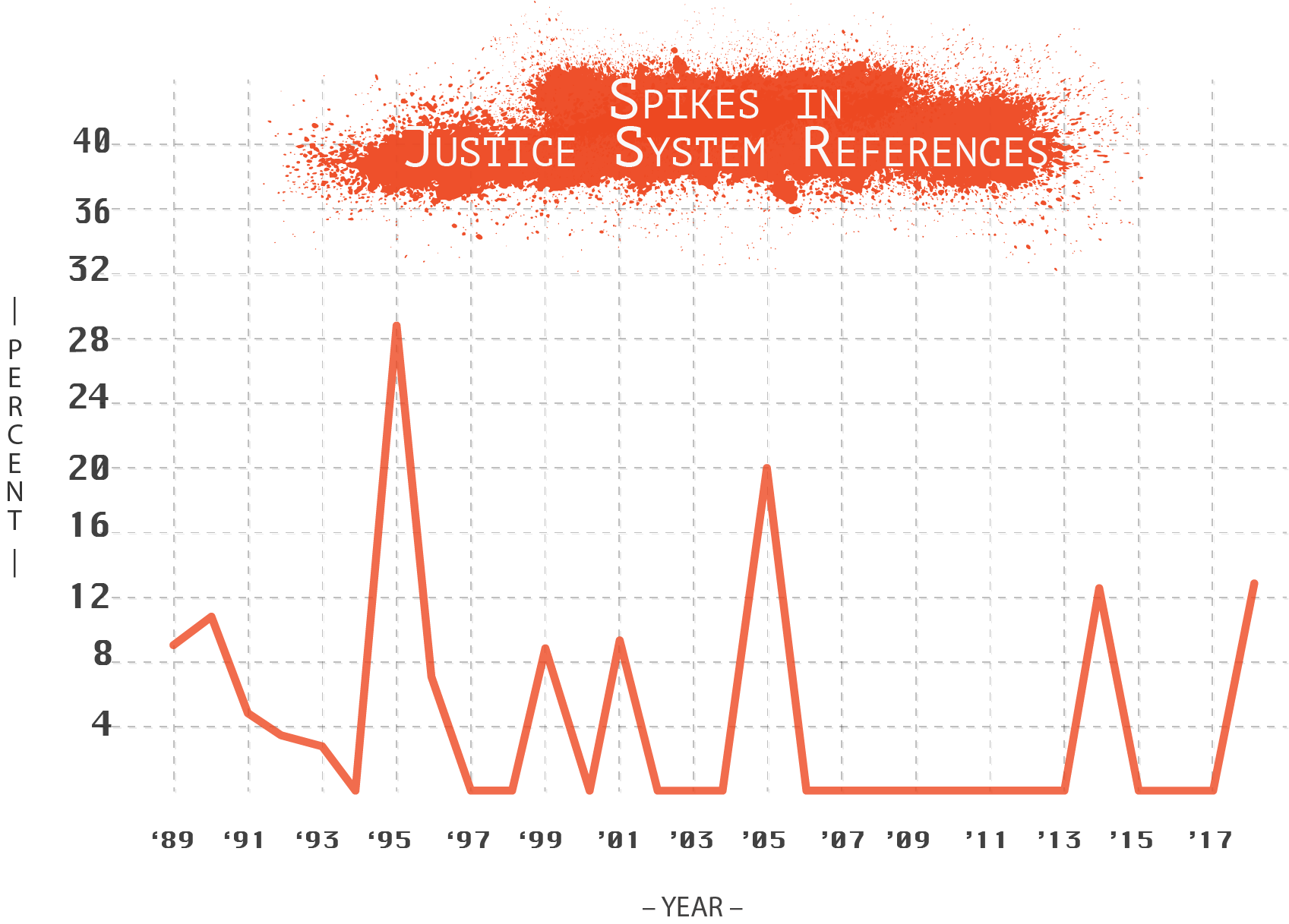
Seasoned rappers are a part of the resurgence in political rap too. Artists mature like the rest of the population; after they achieve personal success, it’s natural to turn to helping others, according to Render.
“I think you see people popup using their means...people bought enough chains and cars you know people bought homes and people started businesses, and they still haven’t seen the change in the world they want to see so they’re becoming politically active.”